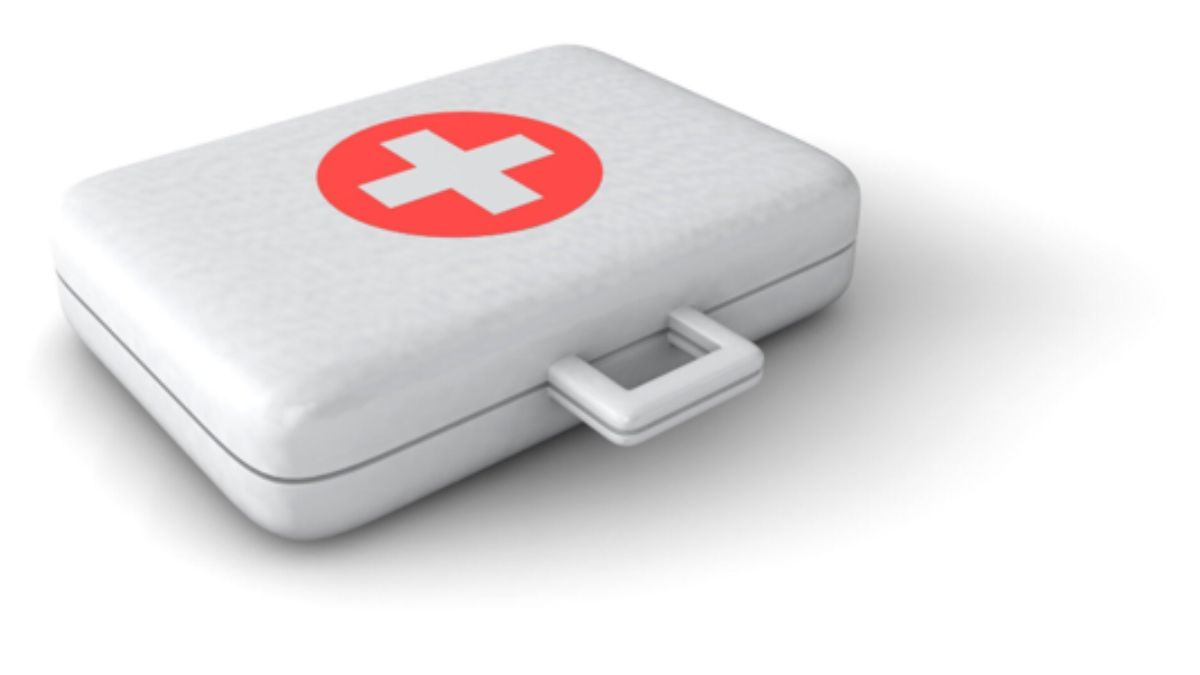HEALTH
Healthcare Providers CPR: Essential Skills for Life-Threatening Scenarios

Introduction
CPR is a crucial competency that every healthcare professional should possess. In emergencies such as cardiac arrest, effective CPR can double or triple the chances of survival for victims. Healthcare professionals play a vital role in delivering immediate care. They should be equipped to initiate this life-saving intervention. But is enrolling in healthcare providers CPR training indispensable for them? Let’s find out!
Significance of Healthcare Providers CPR Training
Basic CPR training is beneficial for everyone. However, the quality of CPR training for healthcare professionals holds a higher standard. The public trusts the healthcare professionals that they know what to do during an emergency. A comprehensive healthcare providers CPR training will help them learn life-saving skills. The training will help them to act quickly and confidently in life-threatening scenarios.
Essential Skills of Healthcare Providers CPR
Emergencies can happen unexpectedly. CPR skills help healthcare professionals make a significant impact and save lives. Read on to explore the essential skills you will master from healthcare providers CPR training.
-
Basic Life Support (BLS) Guidelines
Healthcare providers CPR training equips professionals with the latest BLS guidelines. It will help them by providing evidence-based recommendations for administering CPR. These guidelines encompass compression-to-ventilation ratios, and the sequence of interventions, among others.
-
High-quality CPR technique
Healthcare professionals should understand the fundamental principles of CPR techniques. It includes
- Proper chest compression technique,
- Adequate compression depth and rate,
- Minimizing interruptions and
- Ensuring full chest recoil.
Healthcare providers CPR training will help you master these skills. They are vital for maintaining blood circulation and achieving optimal outcomes.
-
CPR for Specific Age Groups
Healthcare provider’s CPR training focuses on providing customized care for specific age groups. It includes infants, children, adults, and elderly people. You will learn how to adapt techniques and approaches to perform CPR on each age group. For instance, you will learn how to perform CPR on an infant to provide effective assistance in an emergency.
-
Recognition of Cardiac Arrest
Prompt recognition of the signs of cardiac arrest is essential for initiating CPR immediately. As a healthcare professional, you should be able to identify the victim’s lack of responsiveness. It also includes abnormal or lack of breathing and pulse. The training will enable early recognition, ensuring timely intervention and improved outcomes.
-
Airway Management
Healthcare professionals should be skilled in airway management techniques. It encompasses
- Opening and maintaining the patient’s airway,
- Delivering rescue breaths and
- Administering bag-mask ventilation.
This knowledge is crucial for ensuring proper oxygenation and ventilation during resuscitation efforts.
-
AED Usage
AEDs (Automated External Defibrillators) are critical devices for cardiac arrest management. Healthcare provider’s CPR training familiarizes you with
- the use of AED operations,
- electrode placement, and
- Interpreting AED prompts.
Prompt defibrillation can significantly improve the chances of restoring a healthy cardiac rhythm.
-
Teamwork and Communication
Apart from technical skills, the healthcare providers’ CPR program emphasizes collaboration and communication. Effective communication, clear responsibilities, and coordinated efforts are crucial for successful resuscitation. The program will help you become adept at providing clear instructions and delegating tasks. As a result, you can foster a collaborative approach within the healthcare setting.
Types of CPR Training for Healthcare Professionals
Every second counts during medical emergencies. This is why enrolling in effective healthcare providers’ CPR training is paramount. The training will equip healthcare providers with the confidence to offer quick help in emergencies.
-
Certifications
Healthcare professionals can enroll in certified CPR courses that suit their work requirements. Certification demonstrates your compliance with industry standards and offers in-depth training on:
- BLS (Basic Life Support) involves high-quality chest compressions and teaches team dynamics.
- ACLS (Advanced Cardiac Life Support) focuses on team-based responses and swift pharmacological interventions.
- PALS (Pediatric Advanced Life Support) assists in respiratory management for infants and children.
-
Simulation Training
Simulation-based training allows medical professionals to practice their CPR skills in real-time scenarios. The training session promotes teamwork, decision-making, and critical thinking in a controlled environment. Simulation training helps you address knowledge gaps and refine your skills.
-
Regular Updates and Refresher Courses
Healthcare professionals should stay informed and updated about changes in CPR guidelines. Attending refresher courses and participating in skill assessments can help reinforce knowledge. It also addresses any changes in guidelines and maintains proficiency in CPR techniques.
Empower yourself with Quality CPR Training
Investing in quality healthcare providers’ CPR training is not just a choice; it shows your commitment to health and safety. The certification will enhance your skills and be prepared to make a difference when it matters the most. The training will equip you with practical experience and valuable knowledge. Enrolling in the CPR course will advance your career and improve patient outcomes.
HEALTH
What You’ll Learn in CPR & First Aid Training Courses

Have you ever wondered what you would do if someone collapsed in front of you or had a serious injury? It’s a scary thought, but being prepared makes a huge difference. CPR & First Aid training courses teach you exactly how to handle emergencies like this.
In this blog post, you’ll discover what skills you’ll learn, how these courses work, and why this training is so important. By the end, you’ll feel ready to take the next step toward saving lives.
Learn to Act Fast in Emergencies
One of the first things you’ll learn in CPR & First Aid training is how to stay calm when an emergency happens. These courses show you how to think clearly and take action when seconds matter. Whether someone has trouble breathing, is bleeding badly, or has passed out, knowing what to do right away can help save their life.
You’ll learn how to assess the situation, check for danger, and start helping before professionals arrive. These steps can make all the difference.
Discover the Power of CPR
CPR stands for Cardiopulmonary Resuscitation. It sounds complicated, but you’ll learn that it’s easy to do. CPR is a method used when a person’s heart stops beating.
You’ll find out how to push down on the chest in a steady rhythm and how to give breaths if needed. These actions help move oxygen through the body until help comes. CPR is a lifesaving skill, and anyone can do it once they are trained.
Understand How to Use an AED
An AED is a device that gives a shock to the heart to help it start beating again. During your training, you’ll learn how to use it step by step. The machine talks to you and tells you what to do, which makes it easier.
You’ll also learn where to find AEDs in public places and why quick use is so important. Using an AED right away can increase a person’s chances of survival, and you’ll be ready to do just that.
Learn to Handle Common Injuries
Every day, accidents happen all the time. Someone might cut themselves, fall, or have a burn. In CPR & First Aid training, you’ll learn how to help with these injuries.
You’ll find out how to clean and cover a wound, treat a burn, or wrap a sprain. You’ll also learn what not to do so you don’t make things worse. Knowing how to give the right care right away helps someone feel better and heal faster.
Be Ready for Choking and Allergic Reactions
Choking is another emergency that can happen suddenly. These courses show you how to spot the signs and what to do to help. You’ll learn how to perform back blows and the Heimlich method.
Allergic reactions can also be dangerous. You’ll learn how to use an epinephrine auto-injector and how to help the person stay safe until help comes. These are real situations that anyone could face, and now you’ll know what to do.
If you’re curious about even more topics covered in these lessons, get more info by visiting your local training center or health organization.
First Aid Training: The Power to Save Lives
Taking CPR & First Aid training courses gives you the skills to help others during some of life’s scariest moments. You don’t need to be a doctor or nurse. Just knowing what to do during an emergency can save lives.
These courses help prepare you for real-life emergencies in a simple, hands-on way. Did this guide help you? Browse the rest of this section for more advice on a variety of topics.
HEALTH
The Role of Community in Veteran Health and Wellness

Did you know that a strong community connection can play a transformative role in the health and wellness of our veterans? In recent years, studies have shown that social integration significantly boosts mental health and overall well-being, especially for those who have served in the military.
Veterans often face unique challenges, and having a supportive community can be a crucial factor in their recovery and sustained health. This article explores the vital importance of a community in veteran health and how senior living options can enhance their overall quality of life. Keep on reading.
The Importance of Community in Veteran Well-Being
For veterans transitioning back into civilian life, the shift can often feel overwhelming. Many struggle with feelings of isolation and alienation from those who haven’t shared similar experiences. This is where a sense of community becomes essential.
A supportive network helps veterans feel connected and valued. In senior living environments, fostering a community spirit can lead to:
A Sense of Belonging
Veterans often feel better when they know others share their past. Living with peers who understand can make them feel safe. This helps build real friendships and trust.
Improved Mental Health
Being around others can ease sad or anxious thoughts. Talking, laughing, and sharing stories helps the mind. These small moments lift spirits each day.
Physical Health Benefits
Group activities like walks or games keep the body moving. Staying active with others can be more fun. It helps veterans stay strong and feel better.
Easy Access to Resources
A strong group can guide members to helpful tools. It’s easier to ask for help when others understand. Veterans find what they need without feeling lost.
How Senior Living Enhances Social Connections
Many places where seniors live are made to feel like a strong community. Some have special programs just for veterans. These programs help them feel supported and connected with others.
There are group trips, fitness classes, and other fun things planned for veterans. These keep them busy, happy, and moving. It also helps them meet people who understand them.
Some places also give extra care for mental health. Veterans can talk to people who know about things like PTSD. Being around others with similar stories can help them feel less alone.
Building Supportive Care Frameworks
Supportive care is more than just meeting physical needs; it’s about holistic wellness that encompasses emotional, mental, and social aspects. Within a community-focused approach, veterans can tap into:
- Peer support groups
- Integrative wellness programs
- Access to healthcare
The Unique Proposition of Community-Focused Senior Living
Choosing a senior living arrangement that emphasizes community focus provides veterans with the unique opportunity to enhance their quality of life. Not only can they maintain independence, but they can also engage in a variety of activities designed to foster relationships and an active lifestyle.
Facilities that prioritize a community focus in veteran health often include programming tailored specifically for them. They offer more than just a place to live. Veteran programs for seniors create a supportive atmosphere promoting veteran wellness through engagement, shared experiences, and friendship.
Invest in Your Health and Well-Being Today!
If you or a loved one is a veteran looking for a welcoming community, consider exploring options that offer comprehensive support and a vibrant community in veteran life. With a focus on wellness and connection, you can conquer the challenges of daily living and thrive among peers who understand and appreciate your journey. Your health and well-being deserve a community that cares.
For more related topics, check out the rest of our blog!
HEALTH
How Cannabis Extracts are Redefining Medical Applications

How can one plant help with so many health needs?
Cannabis extracts are now used in new ways to treat different medical problems. These extracts come in forms like oils, drops, and pills. Many people use them to feel better without strong drugs.
Doctors and patients are starting to see the value of these products. They are easy to use and made with care. If you’re looking for new ways to feel better, cannabis extracts might be worth a try. Want to learn more about how they work and how they can help? Keep reading!
Managing Pain
Many people deal with pain each day, and finding safe ways to manage it matters. Cannabis extracts are giving new hope by offering support for pain that doesn’t always respond to common treatments.
These extracts may help with joint pain, nerve pain, and pain from injuries. They work by interacting with the body’s systems in a natural way. Unlike some strong drugs, they are less likely to cause harm with long use.
Doctors are now looking at these extracts as a helpful tool for people with ongoing pain. As more studies are done, more is learned about their benefits. To stay informed about growing options for care, reading articles like these can help guide smart choices.
Helping with Sleep
Trouble falling asleep or staying asleep can affect daily life. Cannabis extracts are now being used to support better sleep by helping the body relax at night. Some people say they fall asleep faster and wake up less often.
These extracts may work by calming certain parts of the brain that stay active during rest. Many users prefer them over common sleep aids because they feel more natural. They are often taken as drops or capsules before bedtime.
People who have tried other sleep methods without success are now turning to this option. As more is learned, cannabis extracts may become a trusted part of nightly routines. For those hoping to wake up feeling more rested, they could be a step toward better sleep.
Easing Anxiety and Stress
Busy days and constant pressure can lead to feeling overwhelmed. Cannabis extracts are now being used to help ease anxiety and lower stress levels. Some people say they feel calmer and more balanced after using them.
These extracts may work by helping the brain respond better to stress signals. They are often taken in small amounts during the day and may support a more peaceful state of mind in daily life.
Supporting Appetite and Nausea Relief
Feeling sick or not wanting to eat can make recovery harder. Cannabis extracts are now being used to help reduce nausea and improve appetite. This can be helpful for people going through treatments that make eating difficult.
The extracts may work by calming the stomach and making food seem more appealing. They are often taken in small doses and come in easy-to-use forms. For some, they offer simple support during times of low appetite or queasiness.
Exploring New Paths with Cannabis Extracts
Cannabis extracts are opening new doors in medical care, offering support in ways that were once hard to find. From easing daily struggles to helping with serious health challenges, these extracts are changing how treatment can look and feel.
Their growing use shows how natural options are becoming part of trusted care plans. As research continues, more people may find comfort and balance through these products. Exploring new paths with cannabis extracts in modern care shows how far healing can go.
Did you find this article helpful? Visit our website for more awesome content like this.
-

 HEALTH1 year ago
HEALTH1 year agoIntegrating Semaglutide into Your Weight Loss Plan: A Practical Guide
-

 HOME IMPROVEMENT1 year ago
HOME IMPROVEMENT1 year agoHow to Choose the Perfect Neutral Area Rug for Every Room
-

 LAW1 year ago
LAW1 year agoPost-Divorce Considerations in California: Modifications and Long-Term Planning
-

 LAW1 year ago
LAW1 year agoTeenage Drivers and Car Accidents in California: Risks and Parental Liability
-

 CONSTRUCTION1 year ago
CONSTRUCTION1 year agoConstruction Site Safety Regulations in New York and Your Rights as a Worker
-

 FINANCE1 year ago
FINANCE1 year agoDigital Asset Management in Florida Estate Planning
-

 LAW1 year ago
LAW1 year agoKentucky’s School Football: Concussions, Injuries, and Legal Options
-

 LAW1 year ago
LAW1 year agoGang Activity and Criminal Charges in CA: Protecting Your Rights
